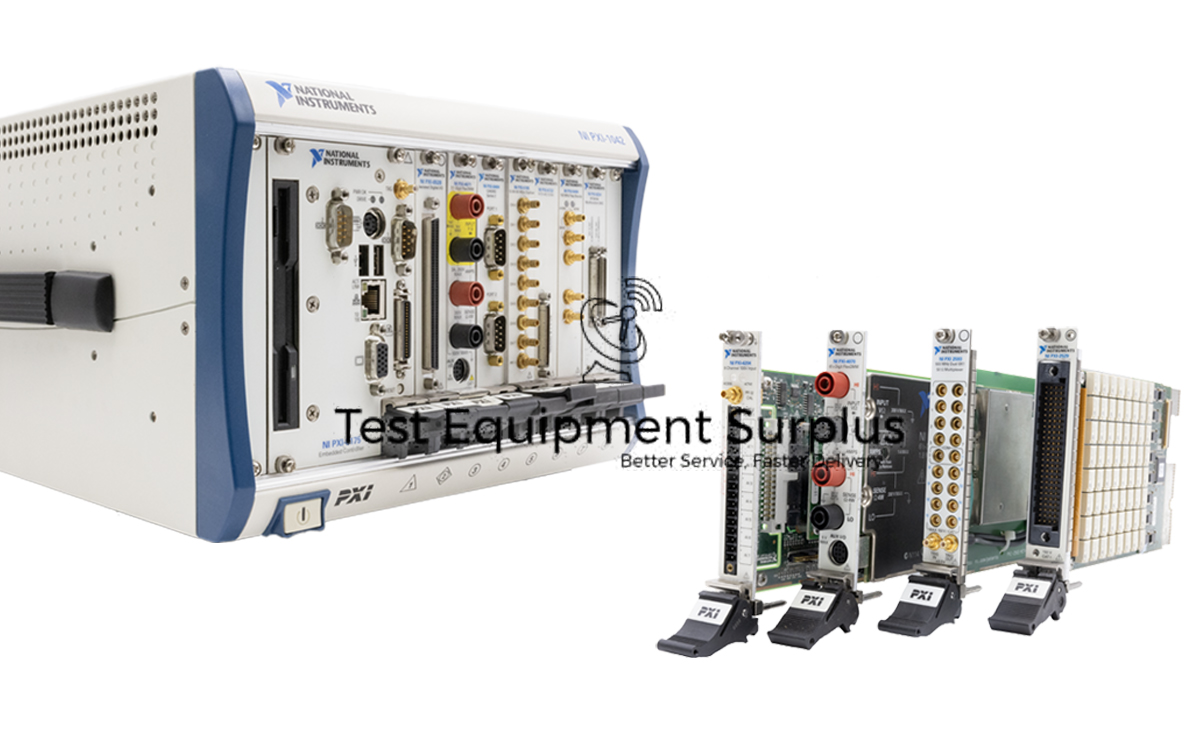Description
The National Instruments PXI-6683H is a high-precision PXI Synchronization Module designed for advanced timing and synchronization tasks. With a GPS receiver operating at a 1.575 GHz frequency, the module ensures sub-microsecond synchronization via a pulse per second (PPS) signal, making it ideal for applications requiring utmost timing accuracy.
It supports IRIG-B, transmitting timing data at 100 bits per second for reliable inter-device synchronization. The flexibility of the PXI-6683H is further enhanced by its compatibility with PFI, PXI_Trigger, and PXI_Star lines as PPS input terminals.
The module’s GPS functionality encompasses precise determination of location, speed, direction, and time, which is critical for navigation and time-sensitive processes. Furthermore, the integration of atomic clock synchronization through GPS satellites ensures that the PXI-6683H maintains highly accurate time references for synchronized operations.
| Specification | Detail |
|---|---|
| Part Number | PXI-6683H |
| Manufacturer | National Instruments |
| Product Type | PXI Synchronization Module |
| GPS Receiver Frequency | 1.575 GHz |
| Pulse Per Second (PPS) Synchronization | Sub-microsecond |
| IRIG-B Support | Yes, 100 bits per second |
| PPS Input Terminal Compatibility | PFI, PXI_Trigger, PXI_Star lines |
| GPS Functionality | Location, speed, direction, and time determination |
| Atomic Clock Synchronization | Yes, via GPS satellites |
Question 1: How does the National Instruments PXI-6683H module ensure high-precision timing for synchronized operations?
Answer 1: The National Instruments PXI-6683H module ensures high-precision timing for synchronized operations through its integrated GPS receiver operating at 1.575 GHz, which provides sub-microsecond synchronization via a pulse per second signal, and by supporting IRIG-B for reliable inter-device synchronization, as well as the use of atomic clock synchronization from GPS satellites to maintain highly accurate time references.
Question 2: What are the specific features of the National Instruments PXI-6683H that contribute to its ability to provide high-precision synchronization for time-sensitive applications?
Answer 2: The GPS receiver in the National Instruments PXI-6683H PXI Synchronization Module operates at a frequency of 1.575 GHz, and it contributes to the module’s synchronization capabilities by ensuring sub-microsecond synchronization with other devices via a pulse per second (PPS) signal.
Question 3: What is the operating frequency of the GPS receiver in the National Instruments PXI-6683H PXI Synchronization Module, and how does it contribute to the module’s synchronization capabilities?
Answer 3: The National Instruments PXI-6683H module utilizes its GPS receiver, which operates at a 1.575 GHz frequency, to receive a pulse per second (PPS) signal for sub-microsecond synchronization, and it integrates atomic clock synchronization from GPS satellites to maintain highly accurate time references for synchronized operations across various devices.
Question 4: What are the capabilities of the National Instruments PXI-6683H in terms of timing synchronization and GPS functionality, and how does it ensure highly accurate time references for synchronized operations?
Answer 4: The National Instruments PXI-6683H is a high-precision PXI Synchronization Module capable of sub-microsecond synchronization with a GPS receiver operating at 1.575 GHz, supports IRIG-B for inter-device synchronization at 100 bits per second, and offers compatibility with various input terminals such as PFI, PXI_Trigger, and PXI_Star lines. Its GPS functionality provides precise location, speed, direction, and time determination, while the integration of atomic clock synchronization through
Question 5: How does the National Instruments PXI-6683H module utilize its GPS receiver and atomic clock synchronization to maintain accurate timing references for synchronized operations?
Answer 5: The National Instruments PXI-6683H features a GPS receiver operating at 1.575 GHz for sub-microsecond synchronization, support for IRIG-B standard transmitting at 100 bits per second, compatibility with PFI, PXI_Trigger, and PXI_Star lines for PPS input, and atomic clock synchronization through GPS satellites, all of which contribute to its high-precision synchronization capabilities for time-sensitive applications.





